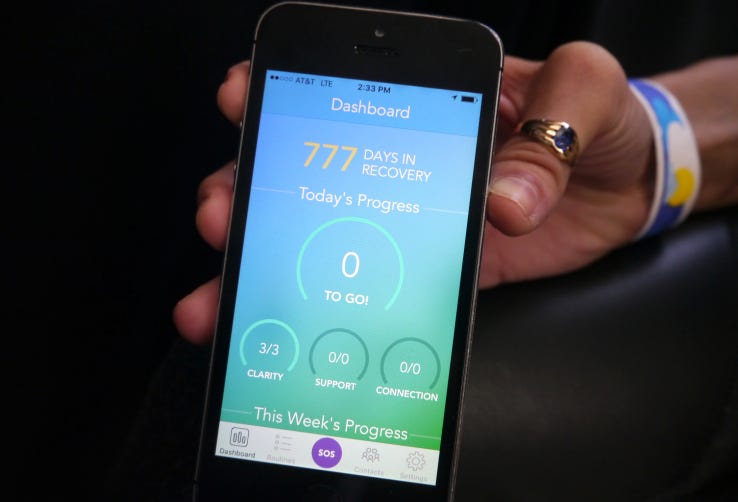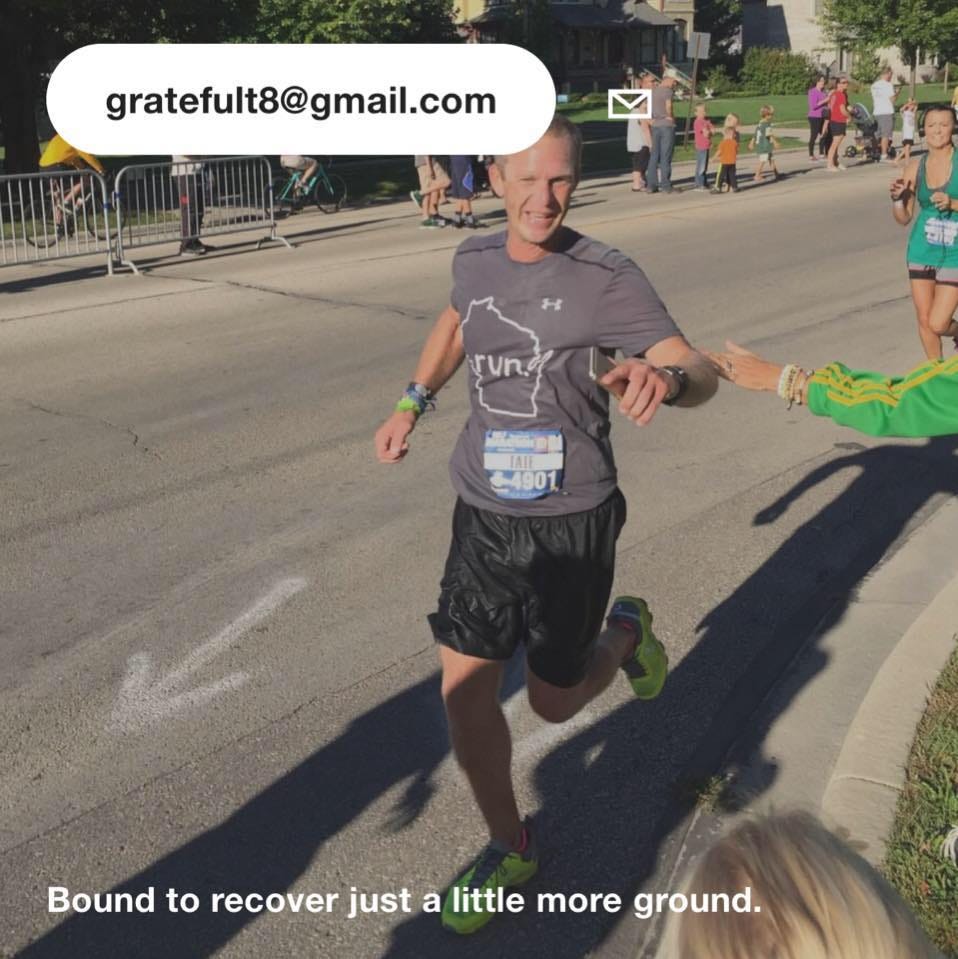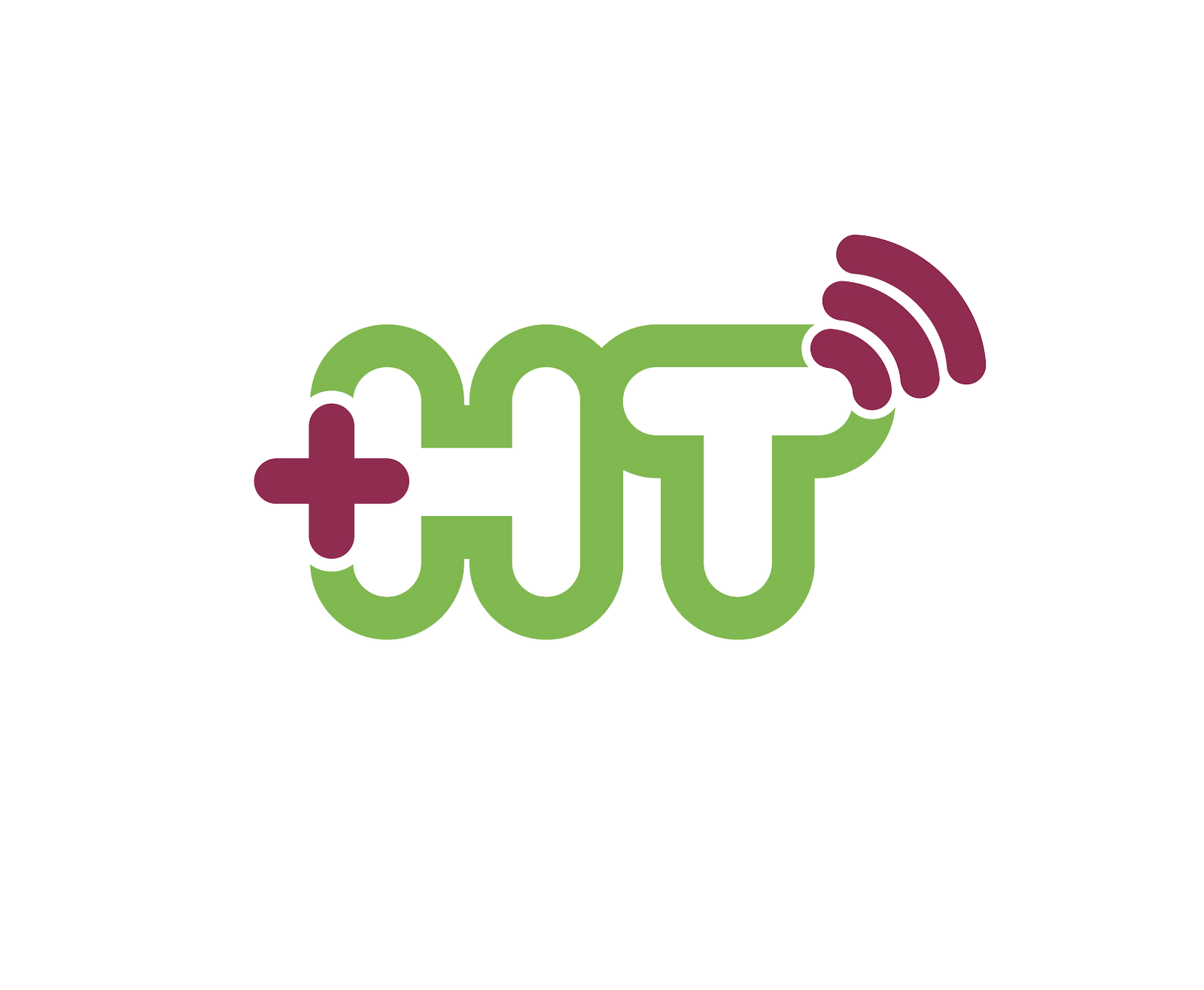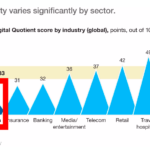A Story of Struggle, a Story of Victory and a Story of Fighting Addiction at Large
An interview with Daniela Luzi Tudor, Co-Founder of addiction recovery assistance app, WEconnect Recovery
“I feel like it’s like a musician writing music, or an author having to write, or an actor having to be in films. To me it’s the way that I express myself; it’s built in.”
WEconnect recovery offers a multifaceted approach to putting useful tools in the hands of those working through addictions and the people that have a chance to help. Co-Founder Daniela Luzi Tudor has manifested an idea to clear a path for the road to recovery for those dealing with addictions. She rose to success after battling addiction herself. She is fueled by a natural fire within, to create and to change. Entrepreneurship is her art. Here, she offers us a story of her own personal struggle, a story of her ability to overcome it and a story of taking on addiction to help others find the path forward. Although there are more online resources available to support addiction and mental health, this is still a largely underserved area.
This year, WEconnect is holding a panel discussion at Health Technology Forum’s Common Good Innovation Conference at Stanford. The panel asks: “How We Can Amplify Solutions for the Public Health Crisis?”. On May 1 and 2, a group of brilliant minds will dive into a public brainstorm forum, to expose these solutions. The group includes influential spiritualist Swami Ananda, behavioral expert Sarah Ellen O’Farrell, and several more fantastic leaders in the addiction recovery movement. More on this below!
Here we explore Daniela’s journey to success in the context of addiction and recovery for herself and for others that find themselves struggling to break free from addiction. Below, we’ll dive into prospects for the future: how WEconnect looks to help those in need, and what we can expect from what is shaping up to be an incredible panel at HTFIC.
Can you give us a brief background on how you ended up as an entrepreneur?
So, I was born in Romania and emigrated through Germany and Portugal before coming here with my parents when I was 11. At that time, my dad told me about someone named Richard Branson, so I started getting very fascinated with entrepreneurship and my dad, even though he was an engineer by trade, he’s very entrepreneurial-minded and always encouraged me to follow my dreams. Both of my parents really posed America as being the land of opportunity and our goal and dream was always to come here.
So fast forward a little bit and I was part of a side business coming out of college which was a night club promotions company, so that was my first odd foray into entrepreneurship and the other part of my early career was technical recruiting and account management for large companies and startups. So even though I wasn’t an entrepreneur per se, I was able to see companies fail and succeed at a very rapid rate, with a lot of flavors of companies.
Then I moved into my first real entrepreneurial venture, which was Soundstrokes Art: we would take the visual wave form of your favorite sound and make it into a high end painting so you could get the waveform painting of your favorite song, your baby’s heartbeat or you saying “I love you” to your partner. And it was at that venture that my Co-Founder Adrienne Trewolla, she’s my best friend today, she sat me down and she said, “hey you have a really big substance abuse problem”. I thought she might be right.
I didn’t know anything about recovery. I didn’t know I had a chronic illness and so I tried to stop on my own for 18 months. I moved back to Seattle from LA and I finally ended up in inpatient. So, it was in inpatient that I learned a couple things. The relapse rate is alarmingly high… this affects 1 in 7 people in the US and when I walked out of treatment, they handed me a piece of paper that was my recovery plan, and they just said, “hey this is what you are supposed to do everyday for the rest of your life”. So, of course the relapse rate is high. I mean, just getting a piece of paper after 28 days of sobriety after using for eleven years, is a really incredibly irrational expectation of someone.

So I thought, there’s gotta be a better way. And the funny part, to circle back to how I became an entrepreneur, I had journaled about this idea in inpatient after getting all these data points and I was sitting there in my sober living house, and I was like 60 days sober and there was a contest online by a company called ‘BUCKiTDREAM’, and it said, “submit your bucket list item; we will pick the top three most creative submissions on the list and the winner gets to go to Necker Island and meet Richard Branson”.
I entered the contest and I ended up winning. By this time I had already prototyped my idea for WEconnect along with Co-Founder Jen Mallory, and it was as a result of that trip that I met one of my other Co-Founders Murphy Jensen, who used to be a professional tennis player. He currently coached his pros, and he’s been in long term recovery for 12 years.
Another piece to add about entrepreneurship, a lot of people ask me why or how this happens. I feel like it’s like a musician writing music, or an author having to write, or an actor having to be in films. To me it’s the way that I express myself; it’s built in. Some people call it naive optimism, but the more roadblocks that I see, the more obstacles I know I can overcome. I just have to keep going. It’s not something that I get a choice in. I don’t think I could be happy being an individual contributor to a large company. It would just be impossible for me.

On WEconnect, it says it tracks in mind, body and spiritual activities to help along the road to recovery. Could you elaborate a bit more on how it accomplishes this and why this approach is important to the recovery process from your own personal experience and what you’ve seen in others?
The typical treatment plan for those in recovery has different components to it. One component is doing anything that involves group or another person, so that could be anything from one-on-one therapy to group meetings, and then the other big piece about healing and getting into remission, or as we call it ‘long term recovery from the disease of alcoholism or addiction’, is to build that relationship with yourself, because usually when we get into treatment, our self esteem is shot. The disease of addiction is a combination of trauma, of physical allergy to drugs and alcohol, and then there’s also brain structures that make different decisions and are built differently than a normal brain.
It’s really important to also do activities that build your relationship to yourself, like exercise or meditation. Some people choose prayer and church. So whatever that looks like for the individual, there’s different flavors of it, but at the crux of it is building some sort of relationship in some sort of program or routine around your mind, body and spirit.
We have two products. One is the mobile app that helps you track and stay accountable to all those treatment plan activities. In return for that we provide healthy rewards, like coffee coupons, or fitness classes to incentivize and provide positive reinforcement. And we also send out alerts, so if you’re connected on their with your entire support network, like counselors, your parole officer if you’re in a DUI case, your loved ones, your peers. They get notifications and alerts based on whether you’re doing well or whether you need additional support.
As a result of building that, we realized theres another huge problem which is lack of data to counselors and information to insurance companies to help assess whether treatment center is creating the appropriate output for treatment plans and also for additional outcome studies. Also, to give a tool to the counselor to stay really connected and aware of what their patient or client is doing, we built a data dashboard so that they can monitor their population on their desktop and laptop and also receive email alerts, as the individual is doing really great or they need extra support.

Do you have any stories of recovery or of your app working for somebody that illustrate the app in action and what you’re driving towards?
During our pilot, we had a woman say that if she had an app earlier, her family would have known that she was neglecting her plan and then she wouldn’t have relapsed.
Also, one of our very first beta testers, he’s reached over a year of recovery now. Back in the day where he had lost everything, to now, where he has these two daughters and he’s started a group called the Grateful Runners. They go running in the morning as a group, before the dawn. He is very inspirational to his community. He’s helped other people recover.
Those are two really big success stories where we saw this working.
To recap, Daniela and WEconnect are taking on addiction with a uniquely pragmatic and multifaceted app as well as a dedicated and passionate team. Daniela was born with the entrepreneurial spirit, a natural force within. But her personal struggles through addiction have fueled an even deeper fire to create these useful tools to take down a problem that unfortunately affects so many of us today. Through mind, body and spirit, WEconnect offers a chance to unlock solutions to leading a better life for current and former addiction sufferers, so that they may have a chance to find for themselves freedom and lasting, tri-fold peace.

At HTFIC, along with Daniela, we have a fantastic group of panelists putting their minds to work on how to take on the complex set of issues associated with addiction and strategizing effective ways to fuel a successful and lasting recovery.
First up is Swami Ananda, a retired Stanford professor with a Master’s degree from Oxford. He heads the Universal Yoga Center. “He’s spoken at the Summit Series for entrepreneurs on Powder Mountain, given spiritual counsel to Marc Benioff of Salesforce.com, and addressed numerous Silicon Valley audiences looking for healthy stress reduction techniques.” [The Battery]
Next is Avi Mukherjee, MBA. He’s the CTO at MAP Health Management. MAP offers custom solutions to assist in clinical/financial outcomes in behavioral health management, which is used to treat addiction and other behavior based health problems.
Third up is Jim Hood, MBA. Jim is the Founder and CEO at Facing Addiction. After his son’s death from an accidental overdose, Jim has directed his life’s work to bringing an end to our current addiction crisis.
Sarah Ellen O’Farrell is a Senior Behavioral Strategist at H+K Strategies. She has deep research roots into behavioral science, and will bring this expertise to help fuel the panel discussions.
Anna Lembke will be featured as the panel moderator. Anna is the Medical Director of Addiction Medicine at Stanford. She will guide and direct the conversation as it unfolds.
Daniela, WEconnect and the group of panelists for this discussion are prepped to give the audience a glimpse into the future of treatment in addiction science. When you put great minds together to talk about an important issue and its solutions, that is when good ideas are allowed to spring forward. This blend of expertise, passion and personal experience is set to be a particularly important foray into addiction and behavioral science, and we look forward to seeing this unfold.



